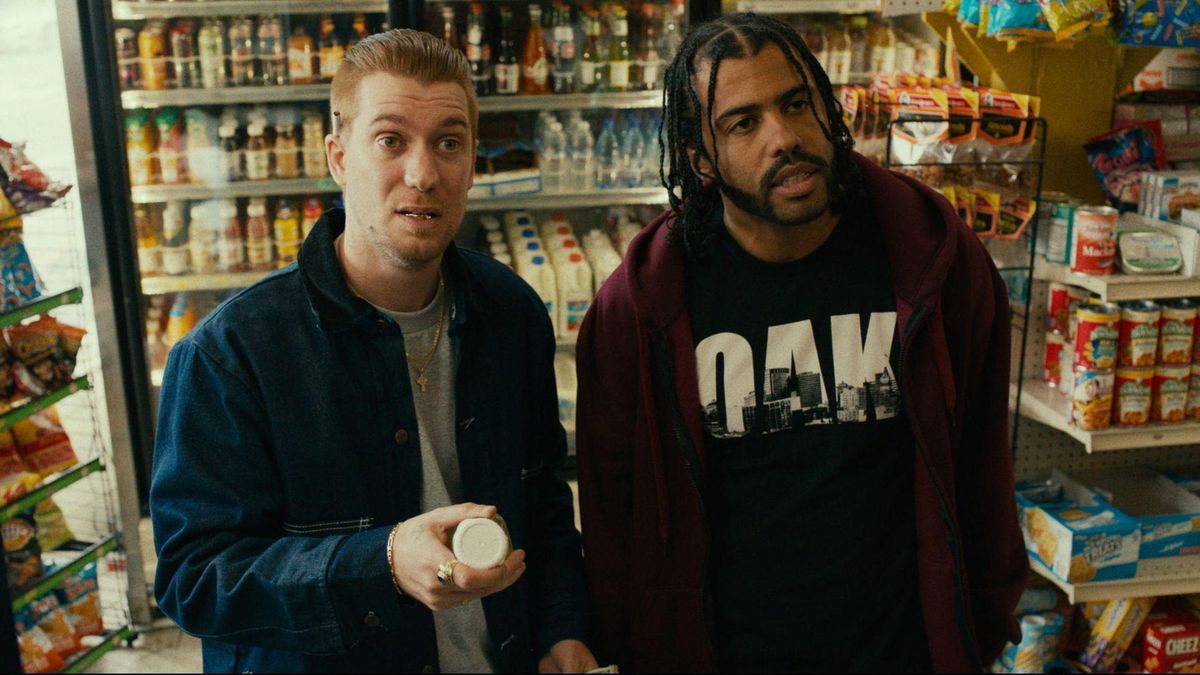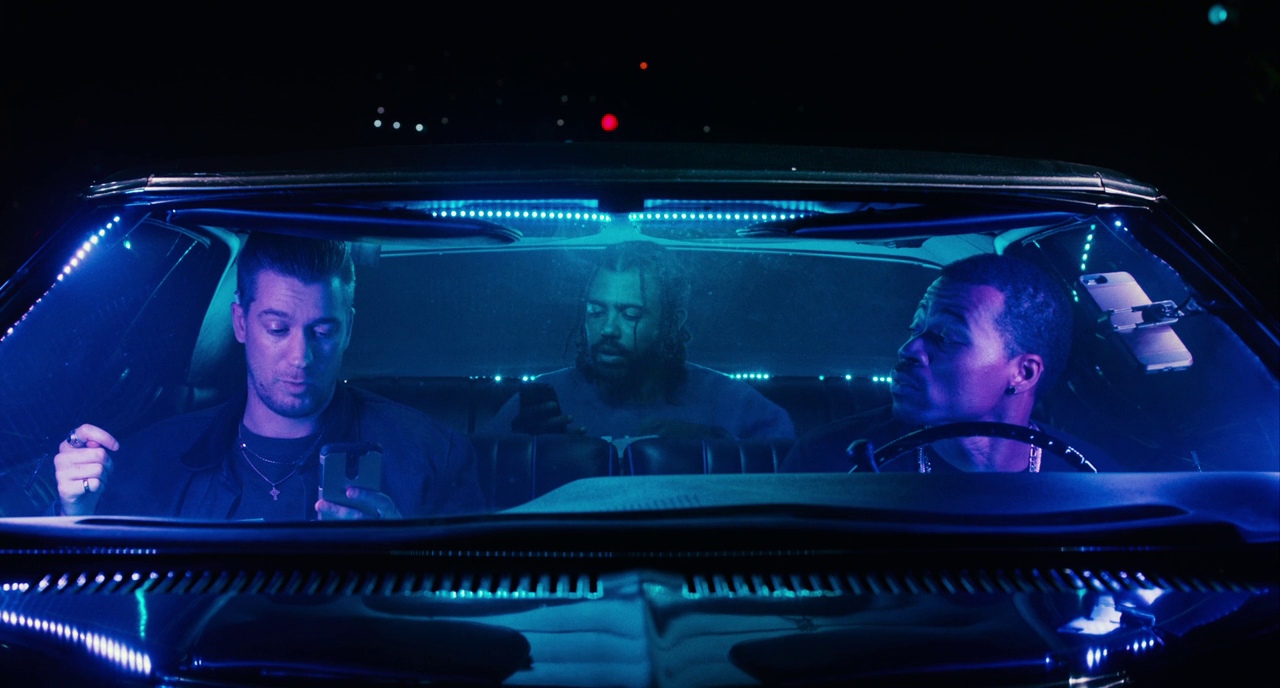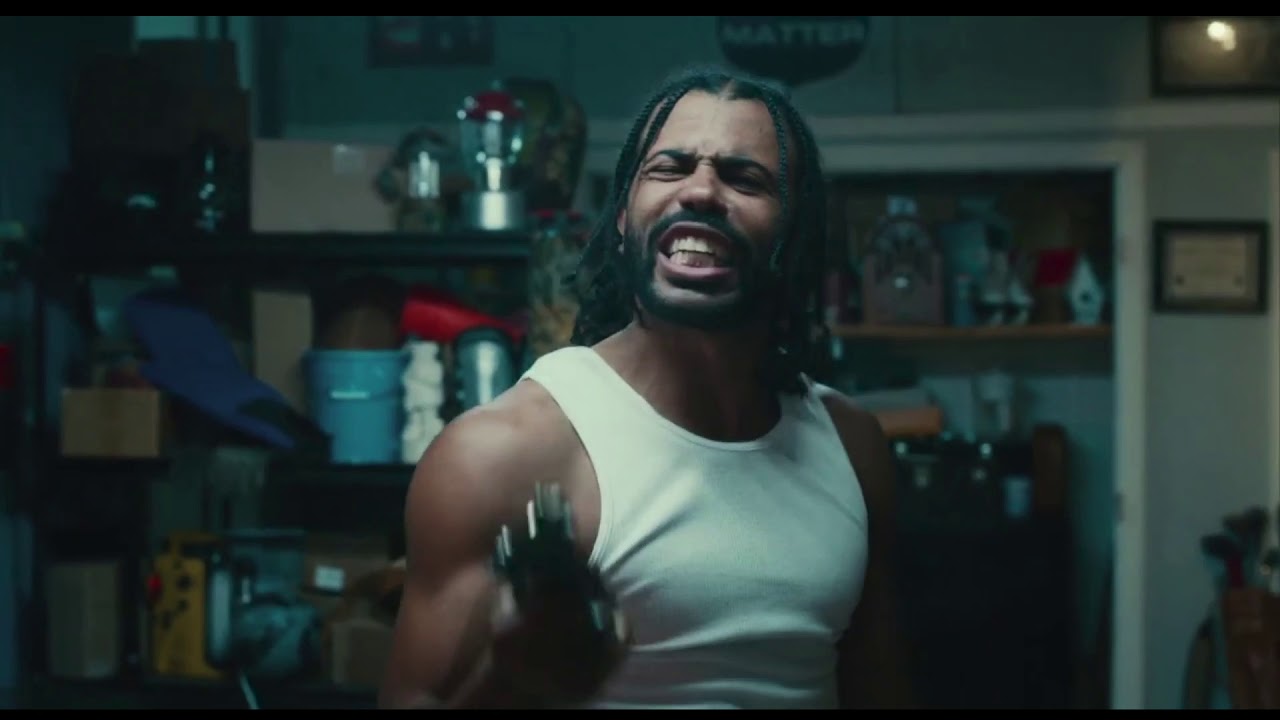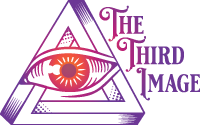Blindspotting



Californian buddies Daveed Diggs and Rafael Casal grew up together in Oakland, over the years witnessing the changes the city underwent, the gentrification it’s succumb to. As they became accomplished talents – Casal a poet and Diggs the lead in Broadway musical Hamilton – they eventually wrote and star in this Sundance premiere-ing indie flick that has fast garnered a cult following since its release in 2018.
Both are incredible talents that I knew nothing of, prior to coming across Blindspotting, but since then, I’ve been checking their names out on YouTube and am frankly blown away by their creative force.
Diggs plays Collin who is on his last three days of probation out of prison. We follow him on those final moments before freedom becomes entirely his, as he pushes to make a change for a better life. It feels like every move he makes, counts. Every encounter is a potential compromise, every lack of control he has over the minutes ticking, a threat. And in the movie’s first act, he witnesses the horrific crime of a white policeman shooting dead a black man running, yelling “Don’t shoot, don’t shoot!”. The policeman sees Collin. He is let go, told to “get out of here”, but his struggle to get through the next couple of days is suddenly intensified with moral dilemmas and questions of identity.
Those questions of identity concern not just Collin, a black man, as an individual, but bring to the forefront the racial difference between him and his best friend, Miles, played by Casal, who is white. This extends into the identity of the city, transformed by silicone-valley hip young executives moving in and gentrifying Collin and Miles’ neighbourhood beyond anything its original inhabitants ever wanted.
Gentrification, racial identity, and police violence, all here hit the nail on the head with the issues many young people are dealing with today. Despite the very serious subjects that piece this film together, the film is really funny. I found myself laughing several times throughout, and still think of it as one of the most joyous film-watching experiences I had that year. I can’t get enough of these two company. For that alone I highly recommend it. A couple of confrontations burst out that bring us back to the reality of what these characters are facing. But the violence is never unearned.
In their day jobs, Diggs and Casal teach poetry. To quote Diggs: “The reason you teach a kid spoken word or how to write poetry, is because no one actually cares what they have to say, until they can make it sound virtuosic, ’til they can make it sound pretty. It’s a trick, to make someone invest emotionally”. And beat poetry/rap is used here in Blindspotting as a means of getting difficult messages across, doing what the art does best, transforming anger and frustration into lyrical expression. Though the two best friends only occasionally use their rap skills in this film, when they do, it definitely serves a purpose.
The ending is a tense breath-holder that left me stunned and my heart racing.
When I saw the film in its original year of release, I felt some relief that many of the issues the film deals with were being dealt with. That’s what I thought. I thought that things were evolving and improving. Little did I know… Truth is, the work is never complete, and the film serves as a great snapshot of modern Western times, told with fun and love, and never diluted relevance.
